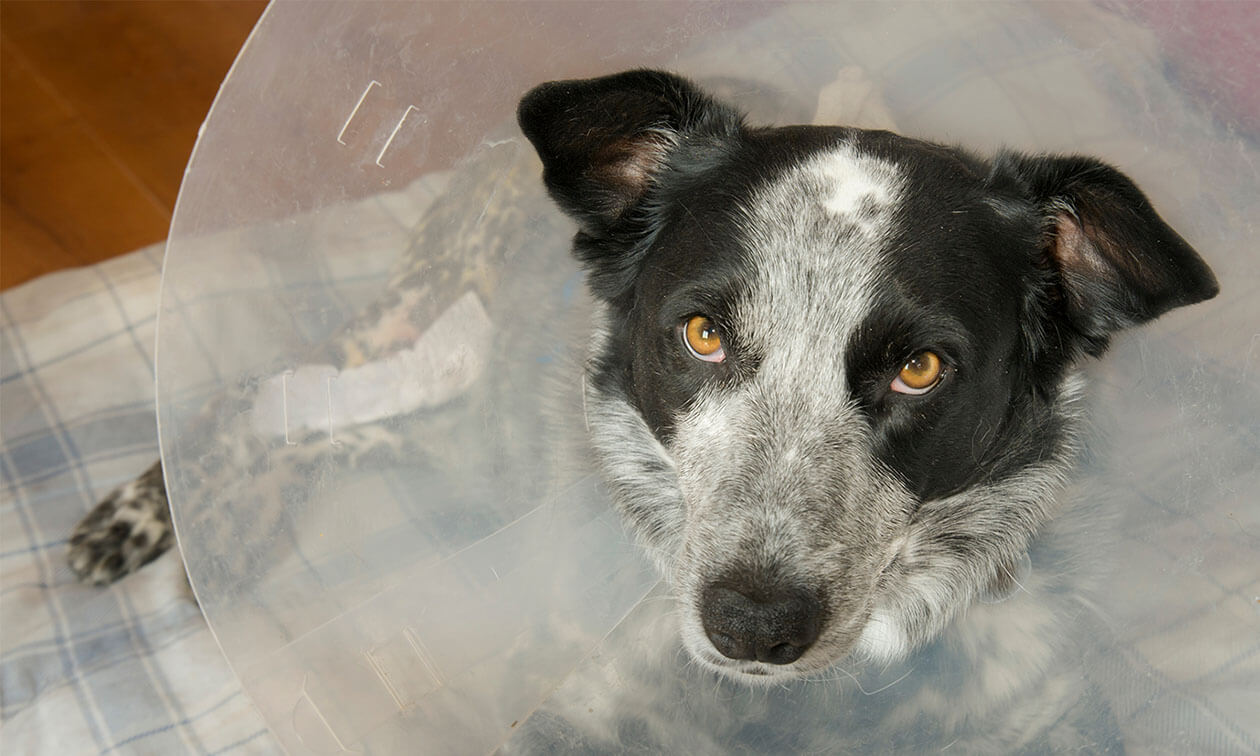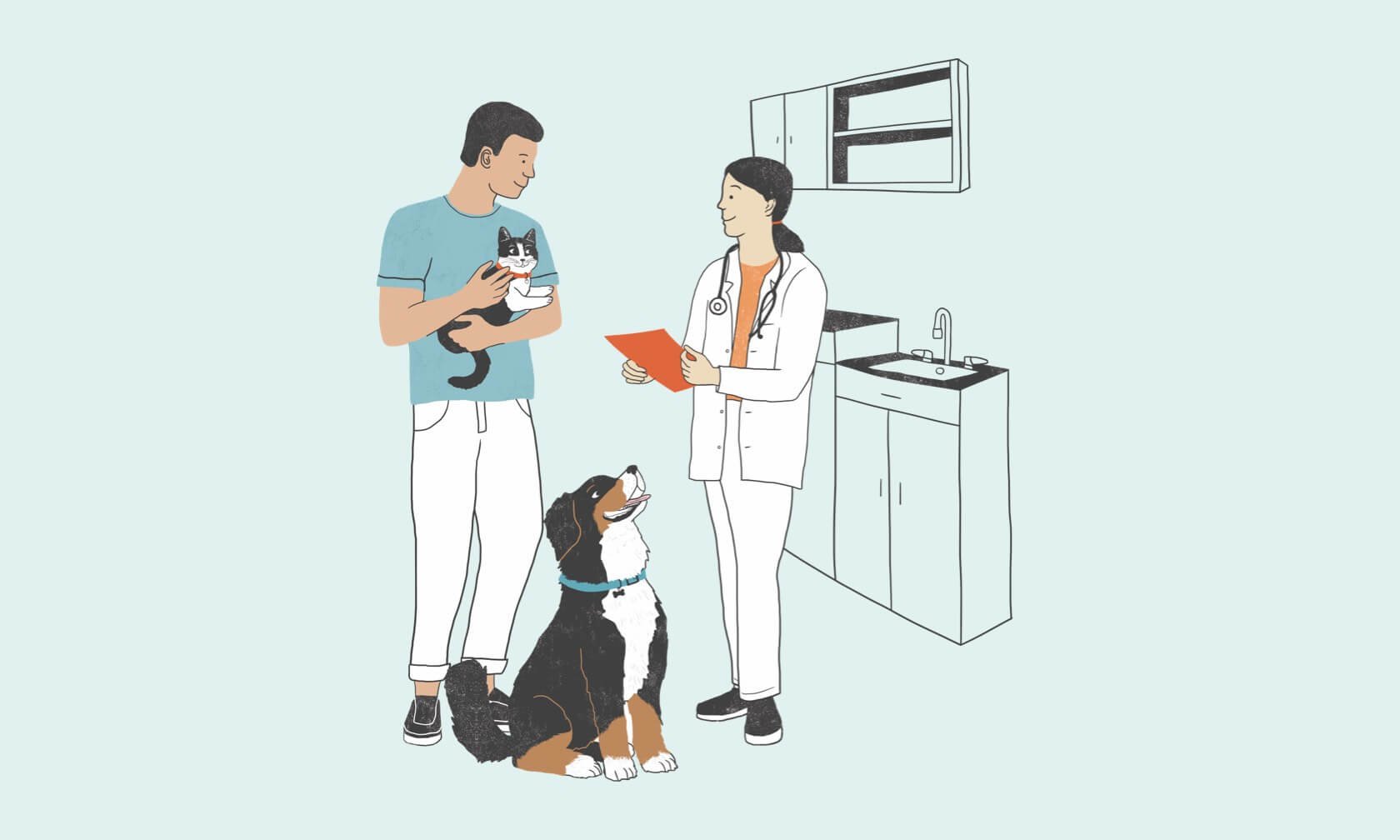Just like humans, pets can develop hernias, but the causes and signs might look a little different. For dogs and cats, hernias can be genetic or caused by trauma. Knowing the basics about hernias in dogs and cats can help you spot the signs, seek treatment, and prevent further complications.
What Is a Hernia?
A hernia occurs when abdominal contents, like fat, intestines, and internal organs, protrude through a hole, tear, or weakened area in the abdominal muscle. Hernias in dogs are quite common. Hernias in cats are less common but can still happen.
There are two kinds of hernias: direct and indirect. Direct hernias occur from a defect or trauma. Indirect hernias happen when the contents push through an existing ring in the wall, such as the umbilical or inguinal rings.
Types and Causes of Hernias in Pets
Reducible hernias can be manually returned to the abdominal cavity. An irreducible hernia, on the other hand, requires surgery to reverse the protrusion. A strangulated hernia occurs when the contents of a hernia become entrapped and blood flow constricts.
In addition to those, hernias can also be internal or external. If it’s internal, you won’t be able to see or feel it (but you may notice other signs addressed below). If it’s external, you’ll be able to see or feel a soft, squishy mass protruding where the hernia is located.
Hernias can occur in different parts of their body as well. The name of the hernia is based on the location.
Umbilical Hernia
An umbilical hernia is located around the belly button. They’re most often found in puppies and kittens due to improper closure of the umbilical ring after birth. In some cases, they will close on their own by the time a puppy or kitten reaches three to four months of age. If not, they’re usually repaired during the spay or neuter procedure.
Generally, these hernias pose no threat and are painless. In rare cases, there is a risk of the intestines and other tissue becoming trapped, resulting in a loss of blood flow and death of those tissues. When you get a new puppy or kitten, your veterinarian. In this situation, emergency surgery is necessary.
The cause of umbilical hernias is unknown, but it is suspected that they’re hereditary. Predisposed breeds include Weimaraner, Pekingese, Basenji, and Airedale Terrier.1
Inguinal Hernias
These occur when the intestines and bladder protrude through the inguinal canal located in the groin. They’re usually one-sided but can affect both sides.
Inguinal hernias can be genetic or caused by injury or obesity.
These hernias are relatively common in older, intact female dogs, often when they’re pregnant. They’re uncommon in cats and male dogs.
Breeds predisposed to genetic inguinal hernias include:
- Basenji
- Basset Hound
- Cairn Terrier
- Cavalier King Charles Spaniel
- Chihuahua
- Cocker Spaniel
- Dachshund
- Pekingese
- Pomeranian
- Poodle
- Maltese
- West Highland White Terrier
Learn more about these breeds with our Breed Explorer.
Diaphragmatic Hernia
A diaphragmatic hernia occurs in the diaphragm, a muscle essential for breathing, when a tear in the muscle allows the liver, stomach, and intestines to enter the chest cavity. This can result in respiratory distress and be life-threatening.
This type of hernia is most often the result of trauma, such as being hit by a car, falling from a high place, or a severe blow to the abdomen. It can also be genetic.
Hiatal Hernia
Hiatal hernias happen when the stomach and other organs push through the opening that connects the esophagus and stomach. Sometimes the stomach slides between the abdomen and chest, called a sliding hernia. These types of hernias can be genetic or due to trauma. This is one of the rarest types of hernias in cats.
Perineal Hernia
This type of hernia occurs when the abdominal contents push through a tear or weakened area of the pelvic muscle. The most obvious sign is swelling on one or both sides of your pet’s anus. They’re generally seen in unneutered, adult male dogs. Rarely do perineal hernias occur in female dogs or cats.
Signs Your Pet Has a Hernia
In order to diagnose your pet with a hernia it’s important to recognize the early signs so you can get them in to see your veterinarian quickly.
For dogs and cats with external hernias, you will see or feel a soft, squishy mass protruding from the body in the location of the hernia.
You won’t see or feel the mass if your pet has an internal hernia, but you may notice other signs. These signs can also show up in pets with external hernias.
Dogs can have signs such as:
- Vomiting
- Decrease or loss of appetite
- Abdominal discomfort
- Lethargy
- Drooling
- High fever
- Difficulty breathing
- Shortness of breath
- Numbness of the legs
Cats can have the following signs:
- Appearing sickly
- Vomiting
- Poor appetite
- Blood in the urine
- Lethargy
- Depression
- Behavioral changes
Early detection is important. As soon as you notice any of these clinical signs, seek veterinary care. Delays in treatment for certain hernias can be fatal.
If your pet is diagnosed with a hernia, your veterinarian will advise you how to monitor and manage it, as well as when surgery is needed.
How Is a Hernia Treated?
Most hernias require surgical repair regardless of their location or type. Surgery puts the organs back into place and repairs the hole or tear. If the hole or tear is large, or the muscular wall is weak, medical mesh prevents re-occurrence.
For dogs and cats, umbilical hernia repairs are often done during spaying or neutering surgery to avoid additional anesthesia and surgery.
How To Prevent Hernias in Your Pets
Prevention depends on the type of hernia. Genetic hernias can’t be prevented but can be minimized by not breeding pets with a history of hernias, since they could otherwise pass the condition to their puppies or kittens.
Breeds that are predisposed to hernias should be spayed or neutered. Since obesity can increase the likelihood of a hernia, it’s also important to keep them at a healthy body weight. If a hernia isn’t genetic, it’s likely caused by physical trauma. Your daily efforts to keep your pet safe will help them avoid this type of hernia. Pet-proof both the inside and outside of your home. Keep your dog on a leash when outdoors in areas with high traffic. Consider keeping cats indoors unless you can confine them to a safe area outside or have them on a harness and leash.
ZPR-00295
- Hernias in Animals. Merck Manual Veterinary Manual. https://www.merckvetmanual.com/digestive-system/congenital-and-inherited-anomalies-involving-the-digestive-system/hernias-in-animals. Accessed March 10, 2024.



